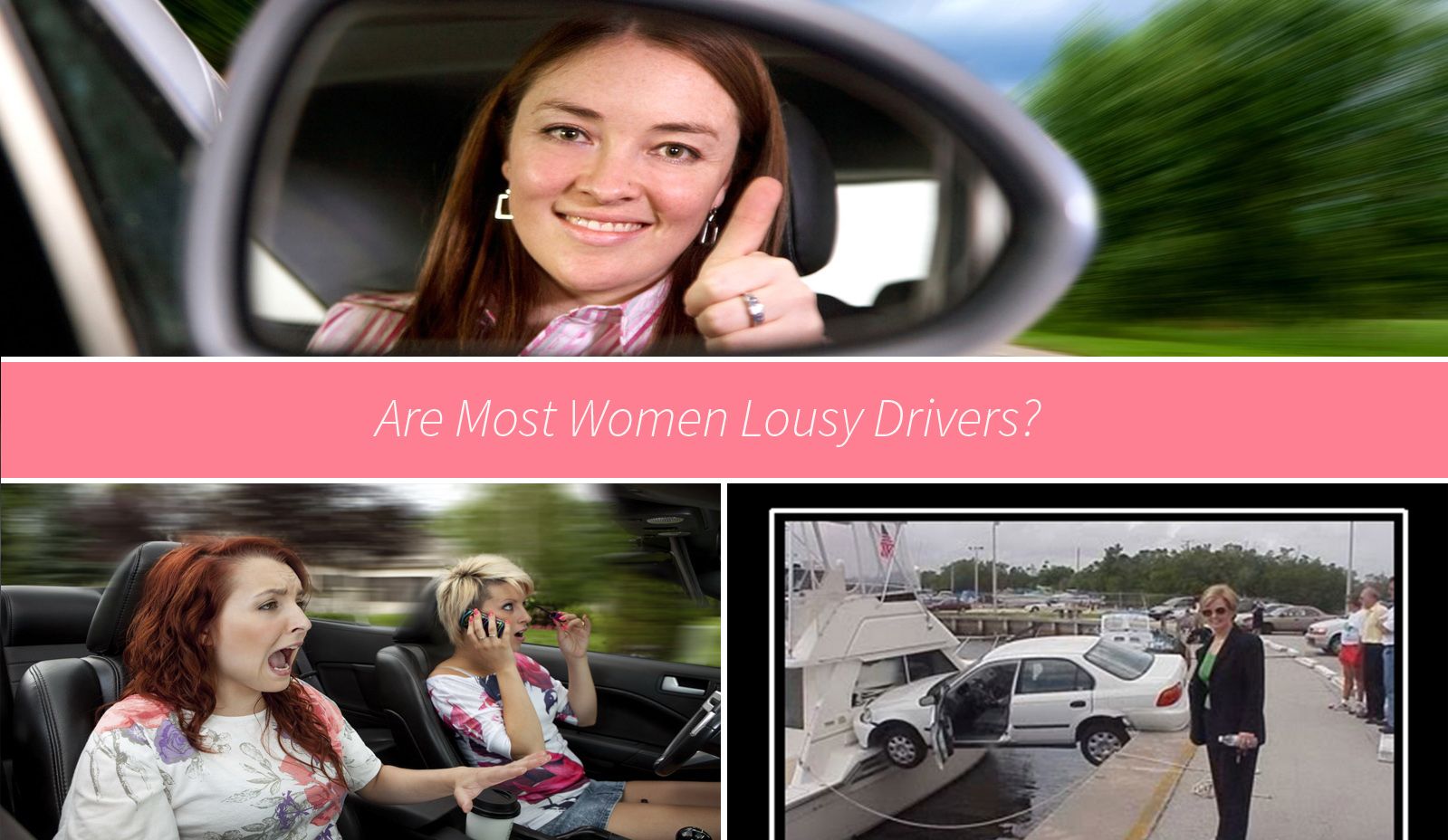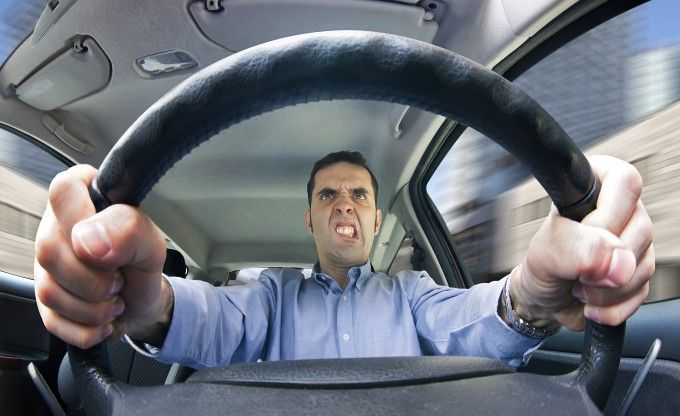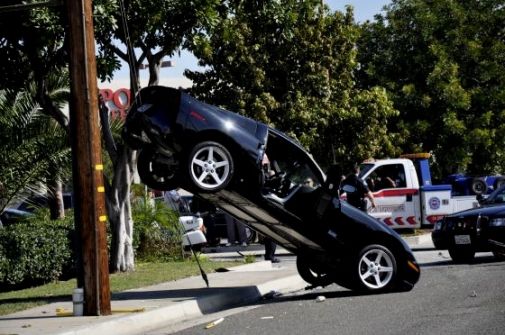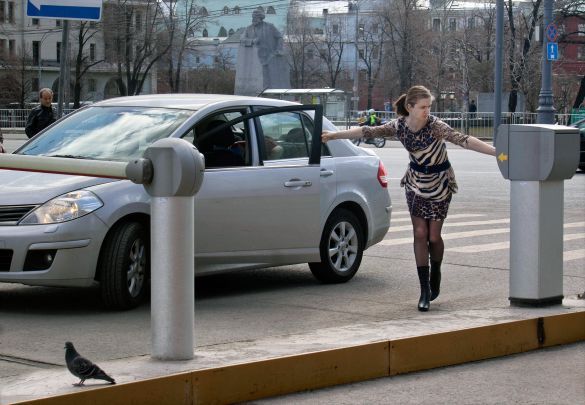When a headline asks me a question, I feel compelled to answer it, sometimes cryptically. In this case, the answer is: no more than men are. In the United States at least, driver’s ed courses suck, so the majority of drivers aren’t properly trained, and don’t care (or know) enough to do better.
It’s not even a matter of loving cars or not (though it’s true that the average person who doesn’t care much about cars isn’t going to put too much effort into learning to pilot one well). I’ve got some bad news for the legions of gleeful hoons out there: Just because you did something on purpose doesn’t mean it’s not bad driving. It does serve as a nice way to camouflage the fact that there are just as many men who can’t drive as there are women, regardless of what you think you’ve seen.
Hello, confirmation bias, our old friend! The good news (in terms of debunking the “bad women drivers” myth) is that there’s not much basis in fact. The other bad news is, it’s pretty much impossible to tell someone that they’re wrong. It’s awfully hard to deny what someone has observed with his own eyes, even if it’s wrong. But really, this stereotype, just like that all BMW/->ke178Prius/->ke231Grand Am/whatever drivers are jerks who don’t know how to drive, or that guys get lost because they won't ask for directions, is entirely rooted in you seeing what you expect to see.
Don't believe me? Try this, then:
What does this say? (Don't cheat and jump ahead.)
"Once
Upon a
a time."
Say it out loud. Go on, humor me.
Continue reading for the full story.
What it actually says is "Once upon a 'a' time." There are two a's. But you didn't catch it, did you, because your brain expected to see it a certain way, so it did. You see what you expect to see.
Anyway...
It’s true. In the past decade, studies done by MetLife and the Insurance Institute for Highway Safety (IIHS) have shown that male drivers are involved in more fatal crashes and rack up more moving violations than women, in all age groups. The U.K. Driving Standards Agency says that women are 27 percent less likely to cause crashes than men. These hard numbers probably come from the aforementioned hoons; a Quality Planning study shows that men are 3.4 times more likely to be ticketed for reckless driving, and 3.1 times more likely to drive drunk. Men tend to be more confident drivers, but that doesn’t necessarily make them better.
Unfortunately, the popular stereotype says that women can’t drive, so any evidence that seems to support this (a female driver crashing into a gas station, an internet video of a woman making excruciatingly terrible attempts to parallel park) is more readily retained than evidence to the contrary—like the pantheon of amazing female drivers you’ve probably never heard of but should: Sabine Schmitz, Pat Moss, Michele Mouton, Hellé Nice, Danica Patrick…I could go on.
Seriously, for every inattentively driven Ford Edge->ke409 parked on top of a fire hydrant by a female driver, I’m sure you can find both a victory by a female racer and a Corvette->ke1280 that overcooked it into a muddy ditch with a red-blooded American male at the wheel.
So where did this stereotype come from in the first place? Here’s a hypothesis (that is itself a stereotype, so your mileage may vary, as they say): Plenty of people, male and female, are bad drivers because they’re disinterested drivers.
Believe it or not, not everybody enjoys driving. No, seriously, it’s true. I didn’t see how it was possible either, but hey, some people juggle geese.
Anyway, throughout car-history, you are likely to find a tendency for a car-loving man to be paired with a car-indifferent woman. To him, the car is His Baby, the crown jewel of all his assorted stuff, a machine to be cared for and properly tended to.
To her, it’s a way to get from Point A to Point B. So there’s a greater chance that she’s going to treat it like an appliance.
Disinterested drivers being likely to be less-attentive drivers, this means the chances of the car getting dinged or scraped, or vital cues to mechanical needs ignored, go way up when it’s in her care.
Thus leading the car-sympathetic male to rant to his friends about how badly she treats the car. The men who are also Car People sympathize, and share their own stories, and a cultural precept is born.
Does this happen the other way around? More than likely. I’m sure there are car-loving women paired with car-indifferent men too (though probably not for long); it’s just not as common, and thus has become the exception not the rule.
But anyway, back to that confirmation bias. Take that cultural precept and use a thousand stand-up comedians, sitcoms, Reader’s Digest stories and jokes to spread it, and it becomes a cultural expectation.
Now, that expectation’s a whole new kettle of fish. Because it’s pop culture, it’s in the public consciousness of men and women, and if all of society says that a woman is going to be a crappy driver based on your physiology, a lot of them are just going to believe it, and not bother to improve bad driving habits.
Combine that with confirmation bias and the problem of representation bias—whereby a member of a particular group is seen as a representative of all members of that group, be it women, Asians, Methodists, dudes with mullets driving Trans Ams, whatever—and that’s a great big complicated social tangle, the short version of which is that folks believe that women are bad drivers and that’s just how it is, no matter how many IIHS studies you cite.
Even though, as I said before, it’s totally not. And if this concept assaults your masculine sensibilities, look on the bright side: this means that there's actually no shame at all if you get outdriven by a girl.
At least now you can tell yourself that. You're welcome.




